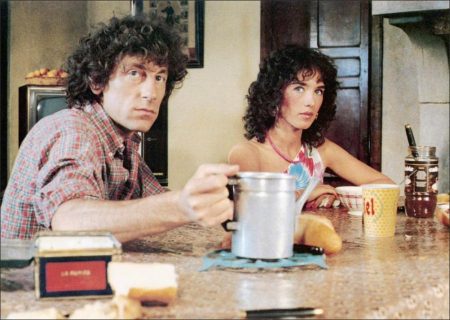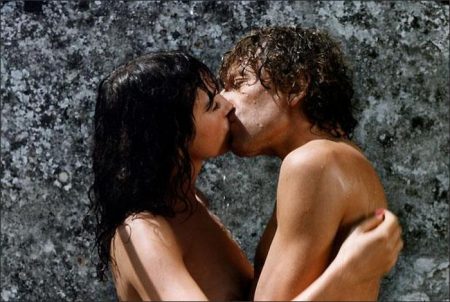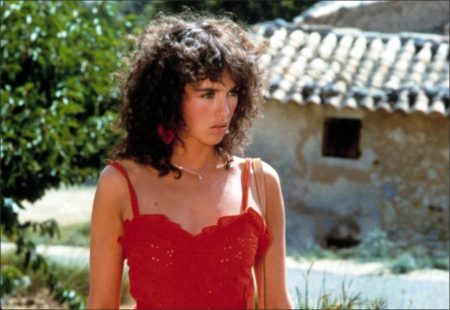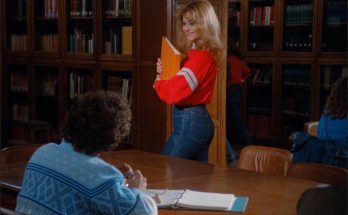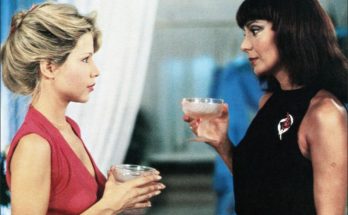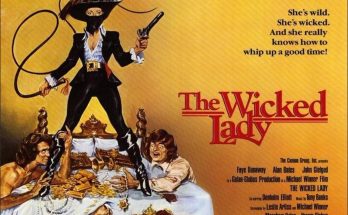One Deadly Summer movie storyline. In spring 1976, a 19-year-old beauty, her German-born mother, and her crippled father move to the town of a firefighter nicknamed Pin-Pon. Everyone notices the provocative Eliane. She singles out Pin-Pon and soon is crying on his shoulder (she’s myopic and hates her reputation as a dunce and as easy); she moves in with him, knits baby clothes, and plans their wedding.
Is this love or some kind of plot? She asks Pin-Pon’s mother and aunt about the piano in the barn: who delivered it on a November night in 1955? Why does she want to know, and what does it have to do with her mother’s sorrows, her father’s injury, this quick marriage, and the last name on her birth certificate?
One Deadly Summer (French: L’Été meurtrier) is a French film directed by Jean Becker. Isabelle Adjani won a César award for her performance in this film. The film was a massive hit in France gaining 5,137,040 admissions and was the 2nd highest grossing film of the year. The film is based on a 1977 novel by Sébastien Japrisot (whose real name is Jean-Baptiste Rossi). The original music was written by Georges Delerue. Yves Montand sings his Trois petites notes de musique, a song that was originally performed by Cora Vaucaire in The Long Absence.
For the first twenty minutes or so, this looks like an all too familiar chirpy French rural comedy: wiggly, pert-buttocked coquette-cum-slut Adjani arrives in a small French village and sets the local manhood afire with lust and rumour. Then the tone shifts and we’re all set to discover that she’s out for revenge for some outrage inflicted on her in childhood.
Things still look predictable, but as the film progresses, become more and more complex; events are related in differing ways by the various characters, and Adjani’s role takes on deepening and more disturbing perspectives. Just as beneath the glossy visuals there lie murky and enigmatic themes of exploitation, treachery and falsehood, so the initial stereotypes are gradually peeled away to reveal confused characters played with an increasing intensity by a fine cast, none more so than Adjani herself. Directed with verve, the film rarely departs from the commercial mainstream, but within those conventions it operates with assurance, subtlety and plenty of surprises.
About the Story
In this tragic tale of misunderstanding, obsession, and increasing madness, “Elle,” a beautiful young woman (Isabelle Adjani) settles into a small town in the south of France with her introverted mother (Maria Machado) and physically handicapped father and soon becomes the subject of wild speculation because of her aloofness and at the same time, her obvious sexuality. The young woman is actually caught up in the desire to avenge the long-ago rape of her mother by three men who had arrived at her isolated house in a van which contained an old piano which they were delivering.
A shy car mechanic (Alain Souchon) becomes enamored of her, and the woman suddenly sees him in a different light when she learns that his father, now dead, was an Italian immigrant who had owned and tried unsuccessfully to pawn the piano. Intent on taking action against the mechanic’s family to right the wrong suffered by her mother, the daughter begins to lose her grip on sanity when she finds out that the men she suspects of the rape are actually innocent.
In fact, her father had long ago exacted his own vengeance on the real culprits. This knowledge pushes her over the edge, and she has to be institutionalized. Meanwhile, the young mechanic misunderstands what happened and that leads to tragedy; he tracks down and kills the innocent men Elle had suspected of raping her mother, believing them to be responsible for Elle’s current condition.
Awards and Nominations
1983 Cannes Film Festival
Nominated
Golden Palm – Jean Becker
César Awards, France, 1984
Winner
César Best Actress – Isabelle Adjani
Best Editing – Jacques Witta
Best Supporting Actress – Suzanne Flon
Best Writing – Adaptation – Sébastien Japrisot
Nominated
César Best Actor – Alain Souchon
Best Director – Jean Becker
Best Film – Jean Becker
Best Music Written for a Film – Georges Delerue
Best Supporting Actor – François Cluzet
One Deadly Summer – L’Été Meurtrier (1983)
Directed by: Jean Becker
Starring: Isabelle Adjani, Alain Souchon, Suzanne Flon, Jenny Clève, Maria Machado, Evelyne Didi, François Cluzet, Manuel Gélin
Screenplay by: Sébastien Japrisot
Production Design by: Jean-Claude Gallouin
Cinematography by: Étienne Becker
Film Editing by: Jacques Witta
Costume Design by: Thérèse Ripaud
Music by: Georges Delerue
Distributed by: SNC
Release Date: May 11, 1983
Views: 525
